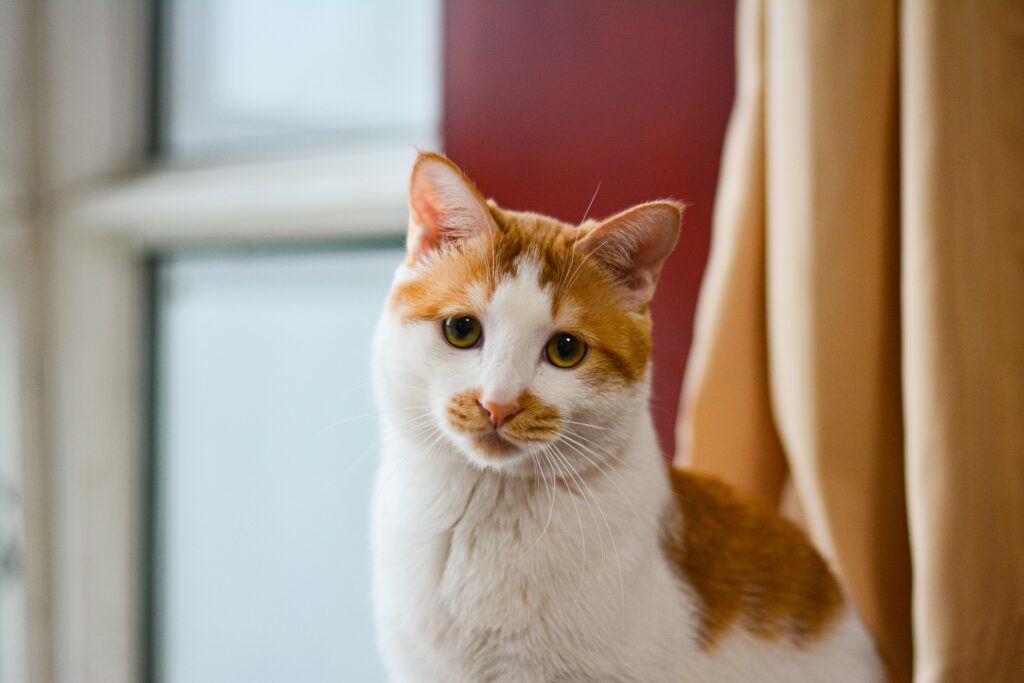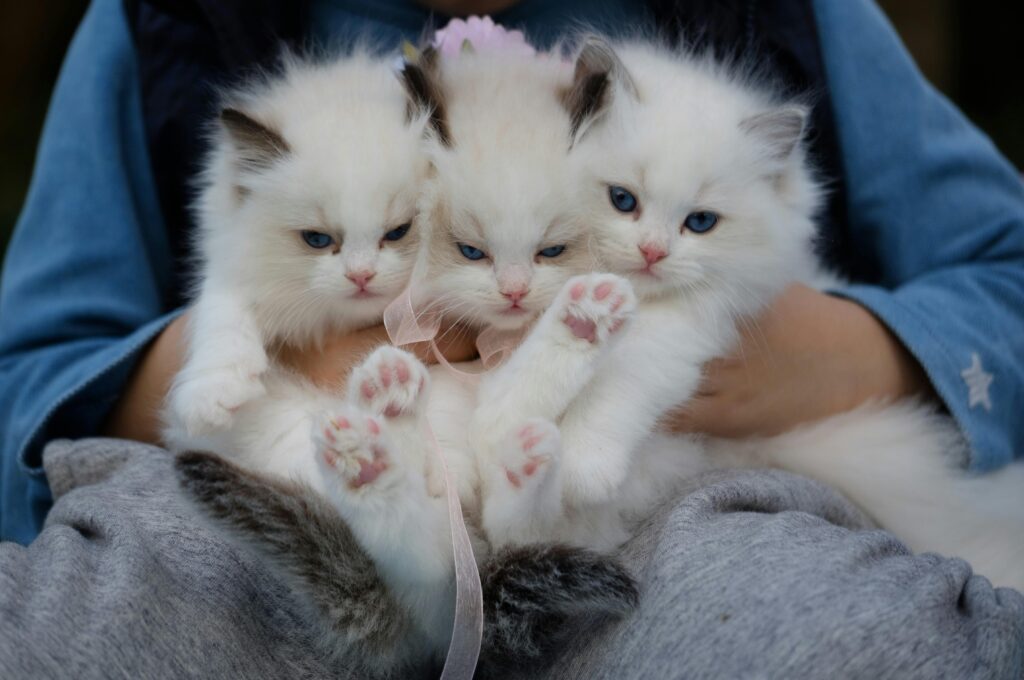Feline veterinarians consider FeLV a significant and widespread infection among cats. It makes their body more prone to other health problems since it weakens their immune system. If you own pets, becoming knowledgeable about this virus is essential to protect them.
The article describes FeLV as a virus, how it is passed, common symptoms and methods to keep it from infecting your cat.
What does Feline Leukemia Virus (FeLV) mean?
Feline Leukemia Virus (FeLV) is a retrovirus which infects cats everywhere. It harms the immune system and increases these children’s risk of getting infections and certain forms of cancer. A cat can live with the virus for the rest of its life after being infected.
This virus does not affect people or other animals, though it can easily be passed from cat to cat.
Different methods for the spread of Feline Leukemia Virus (FeLV)
Cats become infected with FeLV by being close to one another. Most infections are spread when saliva, nasal secretions, urine or feces contact someone else.
Here are the most common ways cats contract an infection:
- Encouraging them to share bowls to drink and eat
- Tending to one another
- Sometimes, you see turtles bite or fight with each other.
- If a mother cat is infected, it can be transferred through her milk to her kittens.
- Cats that live with multiple cats or those allowed to be outside face a raised risk.
Risks Associated with the Feline Leukemia Virus (FeLV)
Certain cats are prone to catching Feline Leukemia Virus more often than others. Knowing about these risk factors allows you to try to prevent them.
Things that can result in vertigo are:
- Unvaccinated cats
- Outdoor cats
- Pets that are taken in from the streets or from an animal shelter
- Kittens that are under 1 year of age
Cats that are together with FeLV-positive cats
When cats spend most of their lives indoors, their chances of getting the virus are very low.
Signs and symptoms of Feline Leukemia Virus (FeLV)
Signs of the Feline Leukemia Virus (FeLV) might not appear until later. When the disease continues, its signs and symptoms become easier to notice.
Watch out for the following signs:
- Weight loss
- Lassitude or lack of energy
- Fever
- Pale gums
- Illnesses causing vomiting or diarrhea
- Recurring infections of the respiratory organs
Swelling of the lymph nodes
The virus can also cause some cats to have cancers, for example lymphoma.
Testing for the presence of FeLV.
Should you think your cat may have Feline Leukemia Virus (FeLV), your veterinarian can easily perform some tests. Most of the time, ELISA blood testing is performed to detect viral proteins.
If the first result is positive, further exams confirm this. These include:
- The test that uses immunofluorescent antibody is known as IFA.
- The Polymerase Chain Reaction or PCR test.
- A quick identification of the disease helps control it better.
FeLV Treatment and Management
There is no way to cure FeLV, but giving proper attention can allow infected cats to enjoy their lives.
The main goal of treatment is:
- Improving one’s immune system
- Managing symptoms
- Avoiding more infections after the initial one
- Ensuring that your pet has an appropriate diet and regular visits to the vet
In particular instances, your doctor may give you antiviral drugs and medications that strengthen your immune system.
How Long Does a Cat Stay Alive After Being Diagnosed With FeLV?
If cared for and healthy, cats with the FeLV virus can live for several years.
A cat’s prognosis differs depending on their health, as some live for just 2 or 3 years, while others are expected to live longer. If you keep your cat inside, try to reduce stress and take them to the vet regularly, it will help a great deal.
Preventing Feline Leukemia Virus (FeLV) from affecting cats
The best way to handle Feline Leukemia Virus (FeLV) is to prevent it. Kittens and at-risk cats should be vaccinated, as these shots are very effective.
How to prevent disasters:
- Ensure that your cats are vaccinated.
- Ensure that your cat stays inside at home.
- Make sure to test a new cat’s interactions before it meets other pets.
- Do not touch stray or unknown cats.
- Always remember to refer to your vet for advice on the accurate vaccination schedule.
Caring for a Cat with the Feline Leukemia Virus
If a cat has Feline Leukemia Virus (FeLV), they should be cared for with additional attention. With the right conditions, they can enjoy life to the fullest.
You can try the following:
- Leave the house tidy and without any stresses.
- Always feed a proper diet to your pets.
- Going to the vet every once in a while to track their health
- Keep your FeLV-negative cats away from infected cats.
Following these steps keeps your cat healthy for a longer period.
Is it possible for FeLV to infect dogs or people?
FeLV targets only cats. Therefore, this only influences cats. It is not possible for dogs or humans to get this illness.
Still, you should take care to slow down or stop transmission between the cats in your home.
FeLV Can Affect Kittens
Kittens are at greater risk for developing FeLV. If a mother who has the illness begins to nurse her baby, then the baby has a high chance of getting it soon after birth.
All unrelated kittens should be tested by bloodline analysis. If recommended by your vet, give them their first vaccination at an early age.
The price to manage Feline Leukemia Virus (FeLV)
Treating Feline Leukemia Virus over a period of time can be expensive. You may have to make regular trips to the vet and use blood testing, drugs and supplements.
Long-term care often takes time and money. If your new cat is at higher risk for illnesses, insurance can be a good idea to consider.
How Emotions Affect Pet Owners
A diagnosis of FeLV in your cat can be very upsetting. Many people feel sad or confused and often even guilty.
Still, it’s good to note: Cats that have FeLV can live a healthy and happy life. If they are loved and cared for, they adapt well to their environment. You can get emotional support from other pet owners or trusted vets.
Beliefs and Misconceptions Surrounding Feline Leukemia Virus
There are numerous myths about the Feline Leukemia Virus (FeLV). Getting informed allows you to choose wisely.
- FeLV is always certain to cause death.
Fact: Proper care allows many cats to live for a long time. - Myth 3: FeLV cats must be put down.
Fact : It’s actually not the case. They have opportunities to enjoy what they do. - Understanding 3: People can become infected with it
Fact: It affects only cats.
Gaining knowledge helps to fight the fear and negative views about the illness.
Caring for a Cat Who Has the Feline Leukemia Virus
Making the decision to adopt a cat with FeLV is an act of compassion. People often ignore these cats, but they can make great pets.
They need extra attention, but they are as loving and full of laughter as other pets. Some shelters offer cats with FeLV a discount on their adoption fees.
Supporting and Helping Felv-Positive Cats
Any house that receives a FeLV-infected cat should offer security and calm. Try to stay away from any situations that could be stressful, noisy or contain other animals.
Ensure your cat sleeps comfortably, has a clean litter area and some toys to entertain it. Being in a secure environment benefits their health and well-being.
Monitoring and Taking Action Afterward
Taking your cat to the vet regularly is essential to look out for FeLV. Changes in the body are found by blood tests and physical exams at an early stage.
It is possible for FeLV to grow in your cat without you ever noticing any changes. Routine visits can help avoid problems with diabetes.
Looking after and supporting cats with FeLV
It is important to care for a FeLV-infected cat beyond giving them drugs. Using holistic techniques can benefit your body and mind.
- Examples of supportive care include:
- Nutritional supplements
- Herbal remedies may be used (follow your vet’s advice).
- Acupuncture and massage are both useful.
Techniques to help reduce stress
Consult a veterinarian before trying any alternative methods of treatment. The needs of one cat can be very different from another.
What to Feed a Cat with FeLV
A healthy diet helps boost the immune system of cats infected with Feline Leukemia Virus (FeLV). A balanced diet allows animals to fight off infections and function properly.
Tips for feeding your betta fish are:
- Food with high protein and no grains
- For hydration, give your pet wet food.
- It is best to stay away from feeding your pet with raw meat (to avoid bacterial infections).
- Using supplements that help boost the immune system
- We must have clean and fresh water available all the time. Certain vets could suggest a diet that is tailored to help FeLV-positive cats.
Working to Increase Knowledge About FeLV
Most people are now aware of Feline Leukemia Virus thanks to raised awareness and this is saving lives. Many pet owners are not informed about what can happen and how to prevent it.
Take part in or assist organizations that inform the community. Exchange your knowledge about FeLV cats by sharing your experience.
Social media
- Pet blogs
- Local shelters
- Online forums
- When the truth is known, people are more likely to adopt and care for these animals.
Supporting Homes and Rescuing Cats Infected with FeLV
Many shelters for pets offer special services for felines infected with the Feline Leukemia Virus. Thanks to these programs, they are provided with homes and safe living arrangements.
Some places are dedicated entirely to housing cats with FeLV. Cats feature safe spaces where they can live happily and not threaten anyone else.
Caring for an FeLV-positive cat would really improve and save their life.
Bringing in FeLV Cats with Other Pets
If one of your cats has FeLV, you should be very careful when caring for the rest of your cats.
Tips for those who have more than one cat:
- All cats should have tests for FeLV.
- Place cats with FeLV in different areas from those who don’t have it.
- Try not to share bowls for food, places for litter or cups for drinking water
- Watch over all your pets at regular intervals.
Keeping these cats with other cats who also have Feline Leukemia Virus is best or alternatively, giving them their own space to live.
The Role of Planning When This Cat Has Feline Leukemia
Caring for a pet that has FeLV requires looking after their health in advance. Aging may lead to changed health, so proper preparation can keep things stable.
Things you should keep in mind:
Have access to funds for pet health care services.
- Your vet should provide you with details on how to comfort your pet during its last days.
- Keep pet health insurance in mind.
- Ensure you keep a list of emergency contacts at hand.
- Preparing in advance may be difficult, yet it allows you to deal with every situation in a caring way.
Ensuring Your Cat Is Happy Emotionally
Feli Caviz has been shown to positively affect cats with the Feline Leukemia Virus (FeLV). Mental health is important because stress can affect the immune system of our pets.
Methods to make your cat secure and feel cared for:
Follow the same routine every day.
- Express affection and kindness every day.
- Cat trees and perches are good ways to offer your pet enrichment.
- Exchange toys often so your child does not get bored.
If a cat is both mentally active and emotionally comfortable, it can still live happily with FeLV.
Conclusion:
Feline Leukemia Virus (FeLV) is something that can be controlled in pets. If pets are found quickly, well looked after and given a home with love, it matters a lot.
Knowing about the virus allows you to keep your pets healthy and happy. Social support allows FeLV-positive cats to share years of love and friendship.















